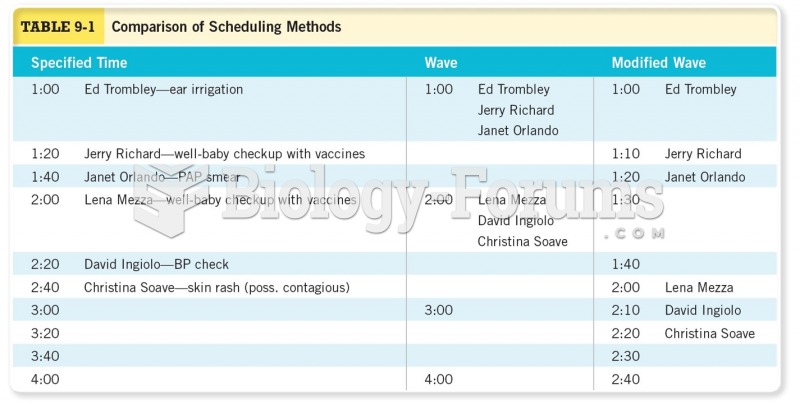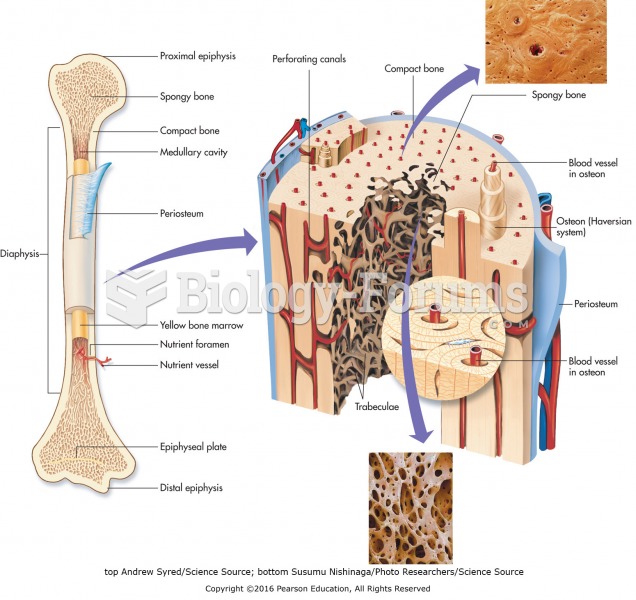|
|
|
Thyroid conditions may make getting pregnant impossible.
On average, someone in the United States has a stroke about every 40 seconds. This is about 795,000 people per year.
Pubic lice (crabs) are usually spread through sexual contact. You cannot catch them by using a public toilet.
Green tea is able to stop the scent of garlic or onion from causing bad breath.
Drug abusers experience the following scenario: The pleasure given by their drug (or drugs) of choice is so strong that it is difficult to eradicate even after years of staying away from the substances involved. Certain triggers may cause a drug abuser to relapse. Research shows that long-term drug abuse results in significant changes in brain function that persist long after an individual stops using drugs. It is most important to realize that the same is true of not just illegal substances but alcohol and tobacco as well.







